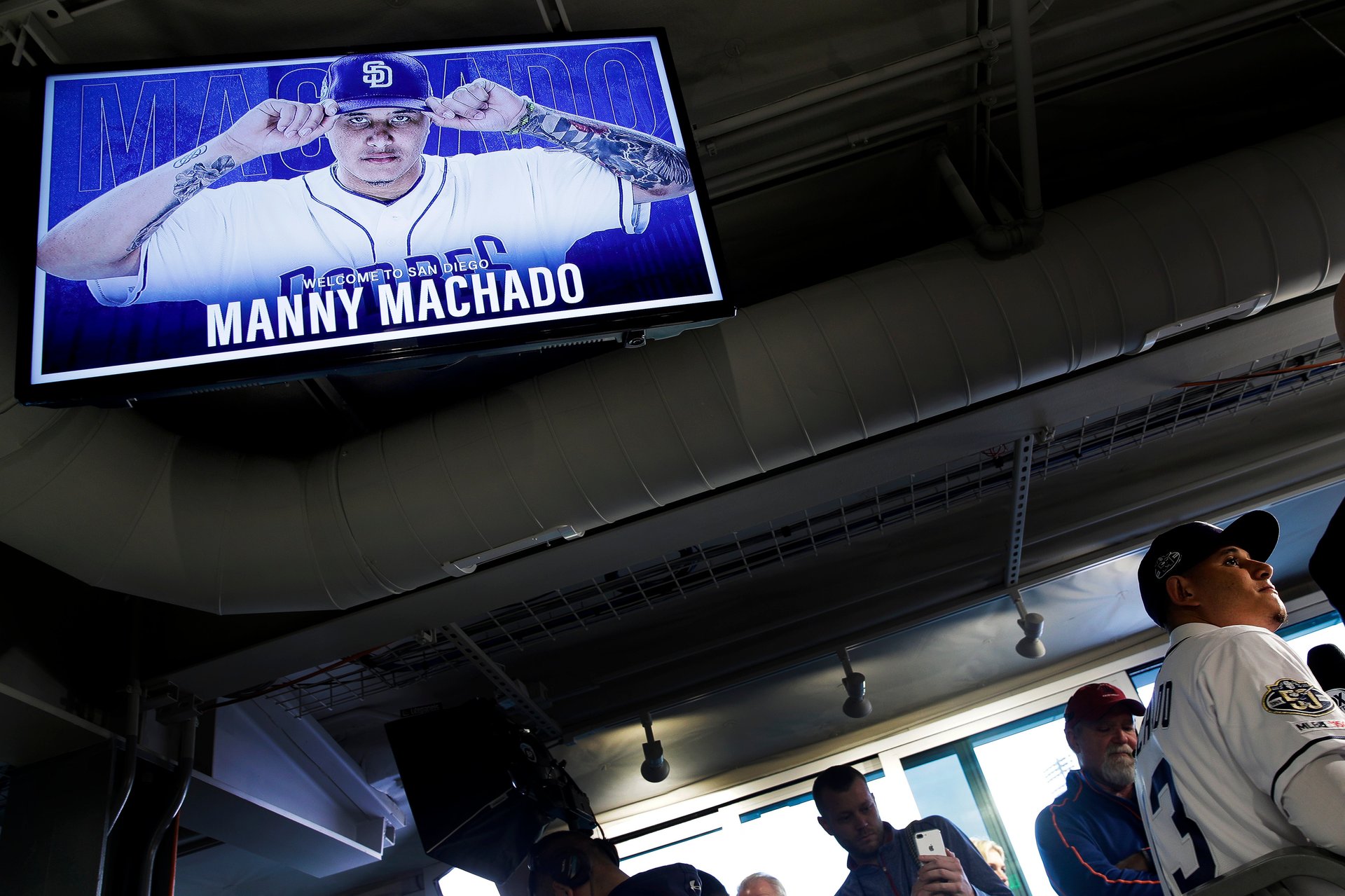Why Major League Baseball thinks cable TV’s certain losses are a winning bet
It’s Opening Day for Major League Baseball and the commissioner is winding up a curveball pitch.


It’s Opening Day for Major League Baseball and the commissioner is winding up a curveball pitch.
Rob Manfred is pretty certain fewer fans will be watching baseball on TV in years to come. Yet MLB is hoping to buy the regional sports networks that broadcast games locally in most of the US markets for its 30 teams, he said yesterday.
Disney has been ordered to sell the cable networks to get regulatory approval for its $71-billion purchase of Fox entertainment assets. The process must be completed by June 18.
“You’re buying an ongoing [regional sports network] business, which generates really significant profits right now,” Manfred told a Paley Center for Media audience in New York, the Associated Press reported. “I think everybody knows that it’s probably going to degrade over time as the cable model erodes.”
MLB, a leader among US sports leagues in streaming content to fans, has lagged in spreading the TV wealth among teams. Manfred sees the regional networks as a way to even the playing field on revenue, while providing a bridge to the new ways viewers will watch games in the future. MLB accepts that the regional networks will “run out of profitability” eventually, he said.
“At the end of that runout—assuming it comes to some sort of a hard end—we would be in control of the content,” Manfred added, and that “better positions us to figure out exactly what that next distribution model is going to look like.”
National broadcast and cable revenue is shared somewhat evenly by all MLB teams. The distribution of local TV and radio money, however, varies, depending on individual deals teams are free to negotiate. Even with some revenue sharing, teams in the biggest MLB markets on the east and west coasts have an advantage. (In-market streaming deals have generally been linked to local TV contracts.)
The widening gap between the richest and poorest teams has created a competitive imbalance, even as MLB brought in record revenue of $10.3 billion last year. There is fierce debate over why the disparity persists, much of it centered on how baseball disincentivizes smaller-market teams to spend more to win. Manfred said something akin to the National Football League’s unified control of TV rights across all markets would be better for baseball. “If we do the transaction, we’ll do it on the theory that we will try to accumulate more,” he said.
To get to first base, MLB reportedly will need to outbid Liberty Media, Sinclair Broadcast Group, and BIG3 (the three-on-three basketball league set up by Ice Cube). Each is reported to be ready to bid around $10 billion for Disney’s 21 networks.